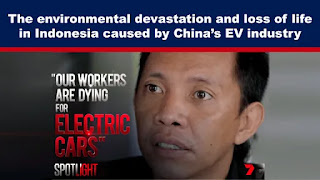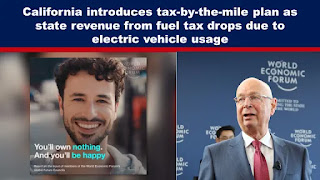The Telegraph’s motoring correspondent Andrew English has been writing
about driving Ford’s Mustang Mach-E. The Telegraph isn’t noted for its
general support of the present and last governments’ energy policies,
but even so his experience was a memorably expensive and salutary one.
The
first thing I learnt during 11,000 miles in the Mach-E was that it
isn’t a ‘proper’ Mustang. Secondly, if you regularly cover high mileage
in an EV, you need to travel when everyone else isn’t to avoid queuing
at chargers.
English set out during autumn half-term to see his elderly mother, his petrol Civic being in for servicing.
It
looked as though Gridserve hadn’t done much planning, either. Of its 24
high-current chargers at Exeter services, eight were out of service. It
was chaos
“I’m glad my boss will be doing this next week so he
can see what it’s like,” said Gridserve’s Matt Sidwell, who was doing
sterling work trying to instill order to the rambunctious queuing system.
With no space to stack cars, no signposting and people constantly
trying to push in, he was fighting a losing battle.
“The thing
that drives me crazy is the people who stay on the charger to get a 100%
charge,” he said. “It’s virtually impossible to achieve and takes so
long because the charger is only trickling current in at that point.”
I looked enviously at the rows of Tesla-only chargers, most of them unoccupied.
It
took 45 minutes for a charger to become vacant. I plugged in the Ford,
unwrapped a bacon sandwich and wondered why Colmans no longer sells
mustard in tubes.
There was a sharp tap at the window. “The
chargers are rated at 175kWh,” said an elderly motorist who’d emerged
from a Nissan Leaf and was peering at the charger display. “You’re only
getting 80.”
I didn’t tell him I’ve rarely seen more than 80 and
even then not for long, although the Ford’s DC fast charging is rated
at 150kWh.
I just wish Ed Miliband, the energy security
minister, was there so I could stuff my bacon sandwich where the sun
doesn’t shine, but he was packing his swimmers for the COP conference in
Baku.
With the Mustang averaging 2.8 miles per kWh on
motorways, it has an effective range of 250 to 270 miles (from the 91kWh
lithium-ion battery) against a claim of 372 miles (although, to be
fair, Ford advertises the Mach-E with a “motorway range” of 306 miles).
To
eke out the range I travel everywhere with the heater off, which
currently demands a substantial coat, hat and gloves. I’m writing to
Santa for thick socks this Christmas.
Fighting off the drastic
effect aerodynamic drag has on an EV’s range, English reached his
mother, who quizzed him about the Ford.
My poorly mother
proved to be in rather better health than the U.K. charging system on
that day. She was interested in the Ford parked outside.
“So, how much does it cost to run?” she asked, ever the mathematician.
I grabbed some paper.
While
I once had to pay a whopping £1.12 per kWh at a Shell Recharge station,
in general fast charging averages at between 85 and 90p per kWh. On a
long motorway journey, the Ford averages between 2.6 and 2.8 miles per
kWh, which is by no means unexceptional in large battery SUVs I’ve
tested. Using the more generous figures in both cases, the Ford is
costing at least 30p per mile for the electricity alone....<<<
Read More>>>....



















